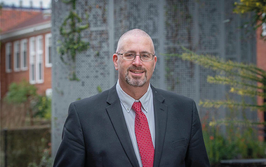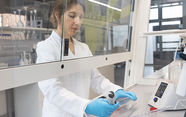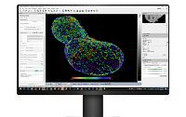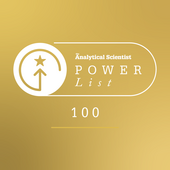Everything You Wanted to Know About a Career in Chemistry* (*But Were Afraid to Ask)
Navigating the road from graduate to PhD to first job can be tricky. Entrepreneur and professor Peter Kissinger has mentored hundreds of students and postdocs. Here, he shares 10 of the most frequently asked questions – and his wise (and honest) responses.
My professor is not helping me and I am afraid to talk to him/her...
First, remember that faculty are people too. They may be stressed by demands from their formal teaching, travel, search for funding, and family life. Building a relationship between professionals at this level is not simple; a student is transitioning into a colleague, and transitions imply challenges.
Another thing to consider is that faculty often don’t engage well with people who do not appear to take the initiative in their own education. Though you may seem to be working for Professor X, you are primarily working for yourself under their guidance. Remember, the PhD is a credential demonstrating independence of both effort and thought. If you do not demonstrate both, you are not a real PhD candidate and that credential is not going to save you.
Many believe that working with a well-established group will help their career; it will not. You will not be viewed as a mini-clone of your professor; instead, you will be judged by what you have done and keep doing. There is no way to have a relaxed life in science – resiliency is a requirement, not an option. Graduate school is a transition from being a follower to being a leader and problem solver. The self-motivated win the day, so know yourself and play to your strengths.

I am frustrated. I’m three years into my project and it is not working out.
In science – as in life – it is not good to put all your eggs in one basket, so consider a portfolio of projects. A good cook can get the meat, vegetables, salad and dessert all ready to go at the right time; a good scientist must balance a number of things at once. Changing projects and groups is not that rare. Students often say, “But I’ll lose a year!” You will not lose a year. You’ve already spent it, used it, and (presumably or hopefully) learned from it. When you are 90 years old, a year spent 65–70 years earlier will seem a few minutes.
If your work is delayed, get going on another project, start writing a review article, catch up on reading. Inspiration comes from activities like these. Do not use the delay as an excuse to waste time that you will never get back. We do not want graduate students to be technicians, waiting to be told what to do. Successful people are energetic and resilient. They fail constantly, but get up and try again.
Should I accept a postdoc position?
For many academics, being a postdoc is a point in life with the least threats (no exams, no dissertation) and the least responsibilities (no grants to get, no faculty meetings). Therein lies the danger – you might be tempted to do the minimum. On the other hand, if you are motivated, you can draft new ideas, concentrate fully on research, publish more, help mentor graduate students and get practice at leadership – which always means teaching. A postdoc who doesn’t add new skills and new ideas to their repertoire has wasted a substantial taxpayer investment. You should not accept a postdoc position to simply hold scientific territory, but rather to boldly advance and claim new lands.
I’ve been offered several postdoc positions. Which one I should accept?
A postdoc is too often viewed as a job rather than ongoing education. Postdoc experience is best if you learn something new – and, in return, contribute something unique to the group you are joining. That’s both a fair deal and helpful to your career trajectory. Remember too that reputation in science is built over decades; do not assume a good reputation means that a professor will be a fabulous mentor today. If you sign on to join a large group without first interviewing that professor and knowing the team, you could be in for a great disappointment.
I’ve been offered a job, but haven’t finished my dissertation yet. Should I take it?
There is nothing worse in a CV than the phrase “completed all requirements for the PhD except the dissertation.” You will be in a very precarious position starting a new position without the degree. Your dissertation work will fade into the background, your new environment will be exciting, and it will be extremely tough to concentrate on past research. My advice is to complete the degree in all respects and don’t start your career with a reputation for not completing assignments – a good employer will wait.
Should I join the group of a senior professor or someone more junior?
I have no definitive answer. There is satisfaction in helping to build a new research group, but there is also satisfaction in working with a mentor who is away a lot and will not pester you (I thrived under that model). The personalities, size, and fit to subjects that interest you are more important than the maturity of the research group. Ask yourself every day whether what you’re doing is going to be relevant to your dissertation, CV, or future career. If not, why are you doing it?
How can I make the leap from my PhD program to industry?
Just do it. Classroom learning is overrated by both faculty and students; it simply can’t compete with real-world experience. PhD students have been successful in industry jobs for decades – how is this possible if there were no courses to orient them with industry or government labs? Perhaps because the basic ingredients for success are largely the same in every occupation. Anyone working effectively in science must be curious, a self-learner, good at working with others, and a good communicator. Respect for others and a sound ethical foundation matter everywhere. That said, there are opportunities to interact with alumni from commercial settings, to take short courses with business schools, and (especially) to read business-oriented publications – take them.
My advisor asked me to help peer review a scientific paper. Should I?
Peer review is the foundation of science, and to participate is a responsibility to the community. It is a means of keeping up with what others are thinking and what they view as important. I served on NIH study sections for 30 years. It was an amazing learning opportunity; I was able to meet people superior to myself from whom I learned so much. Knowing them, dining with them, exchanging ideas with them, and joking with them have been the highlights of my life in science. Some ask, “Why review when there is no pay and no one knows you are doing the work?” Pay is not what makes life purposeful (in fact, if money is your sole focus, it is likely to make you miserable). Helping to review is a welcome opportunity. Do it well, and with respect for the efforts of those you are reviewing.
What advice do you have for a student wanting to start a company?
Don’t do it unless you are crazy. If (like me) you are crazy and have tremendous resilience in the face of failure then it is great fun. There are many ways to prepare. Read a lot, write a business plan, and try to meet people who have already set up a business. Take a job in industry and learn not just that job, but all that is going on around you. Learn how to sell; learn how to inspire people (aka selling); learn how money is raised (aka selling); learn how to listen and follow; learn that whatever you want to do will take three times longer and perhaps five times as much capital as you think it will; learn to adjust your plan in the face of a changing reality. Success is rare – but if you love the process, even a failure will have its rewards.
What are the secrets to success?
There are three. (All good things come in sets of three: bears, pigs, blind mice, musketeers, stooges, stages in a mass spectrometer…)
- Discipline (self-control, effort, health, learning, ethics, precise language, listening skills)
- Tolerance (respect that there are different points of view, debate with civility)
- Thrift (spend less than you take in; laugh often, it costs nothing)
To sum it up nicely, simply substitute a technical discipline (for example, chemistry or mass spectrometry) for the word “writing” in this famous quote from Kevin Atchity:
“Discipline is the key to all that follows; it’s the bedrock of productive writing. Talent is not a rare commodity. Discipline is. It requires determination more than self-confidence, the commitment of your will to the dream.” Kevin Atchity (“A Writer’s Time”; 1986).
Peter Kissinger is Professor, Brown Laboratory of Chemistry, Purdue University, and a founder of Bioanalytical Systems, Inc. (BASi), Prosolia, Inc., and Phlebotics, Inc. Indiana, USA.

















